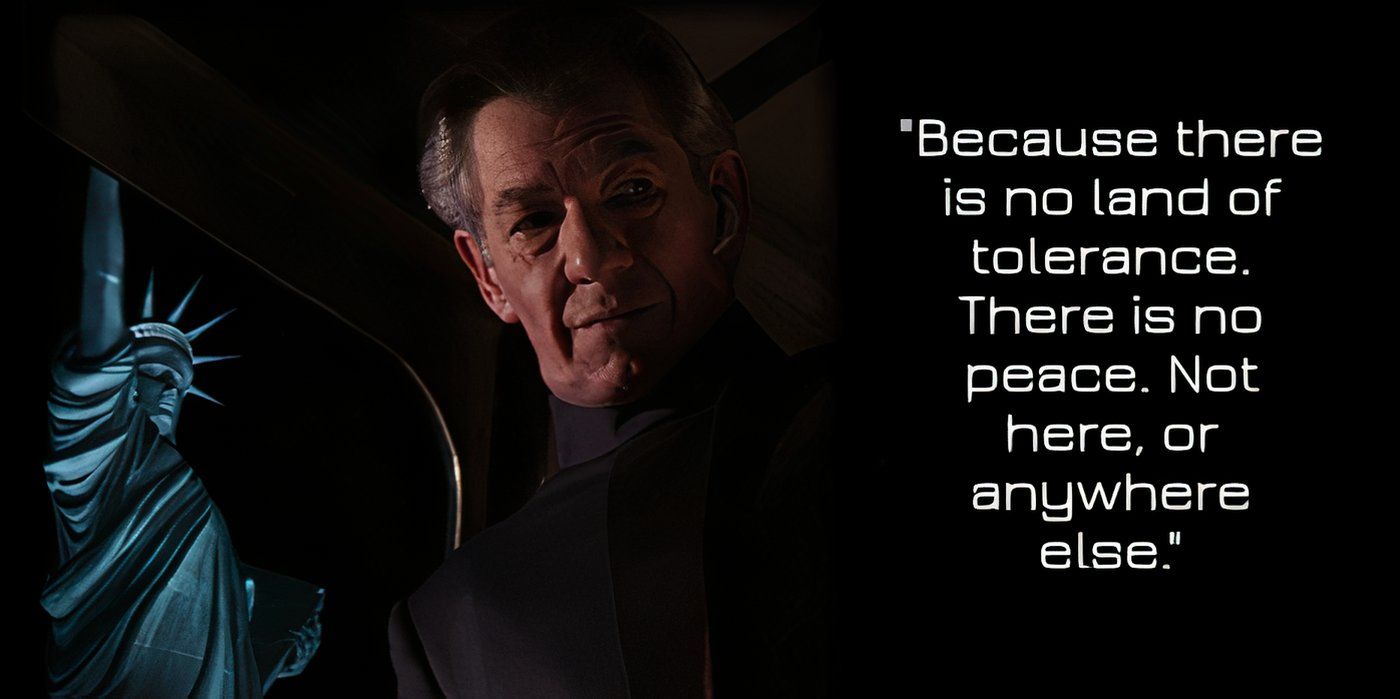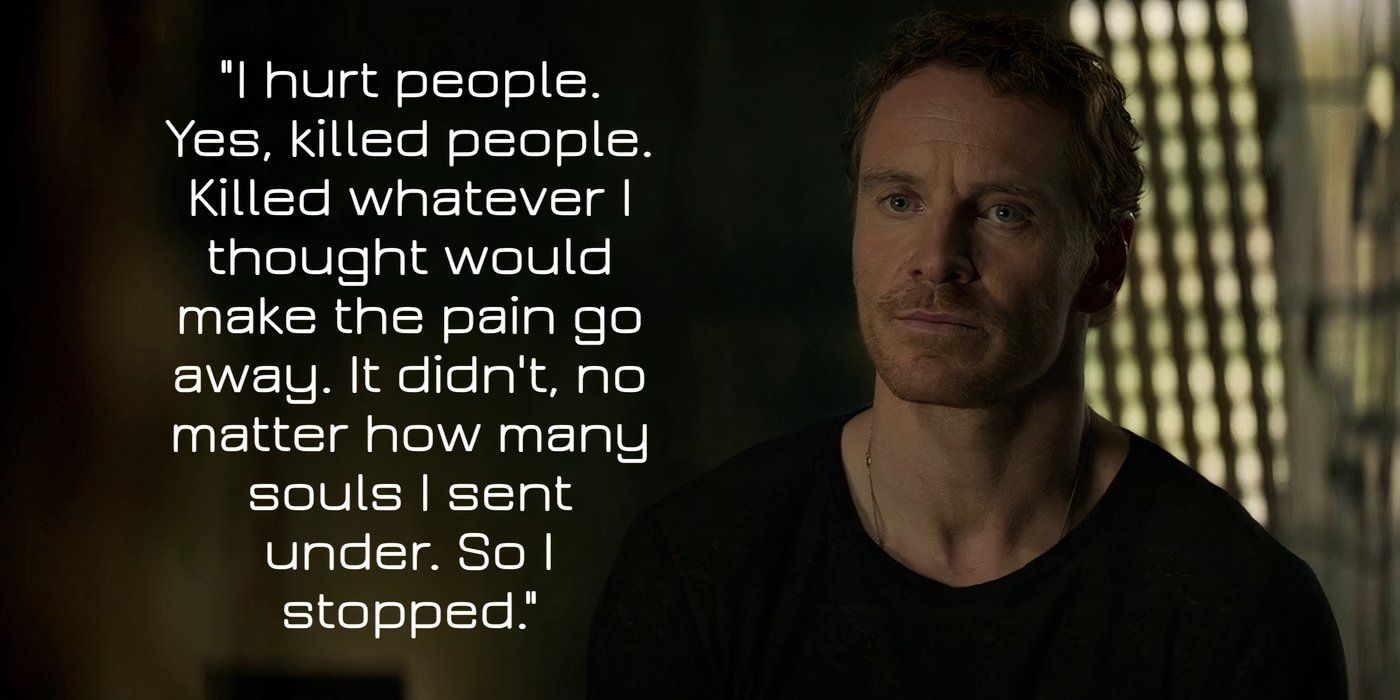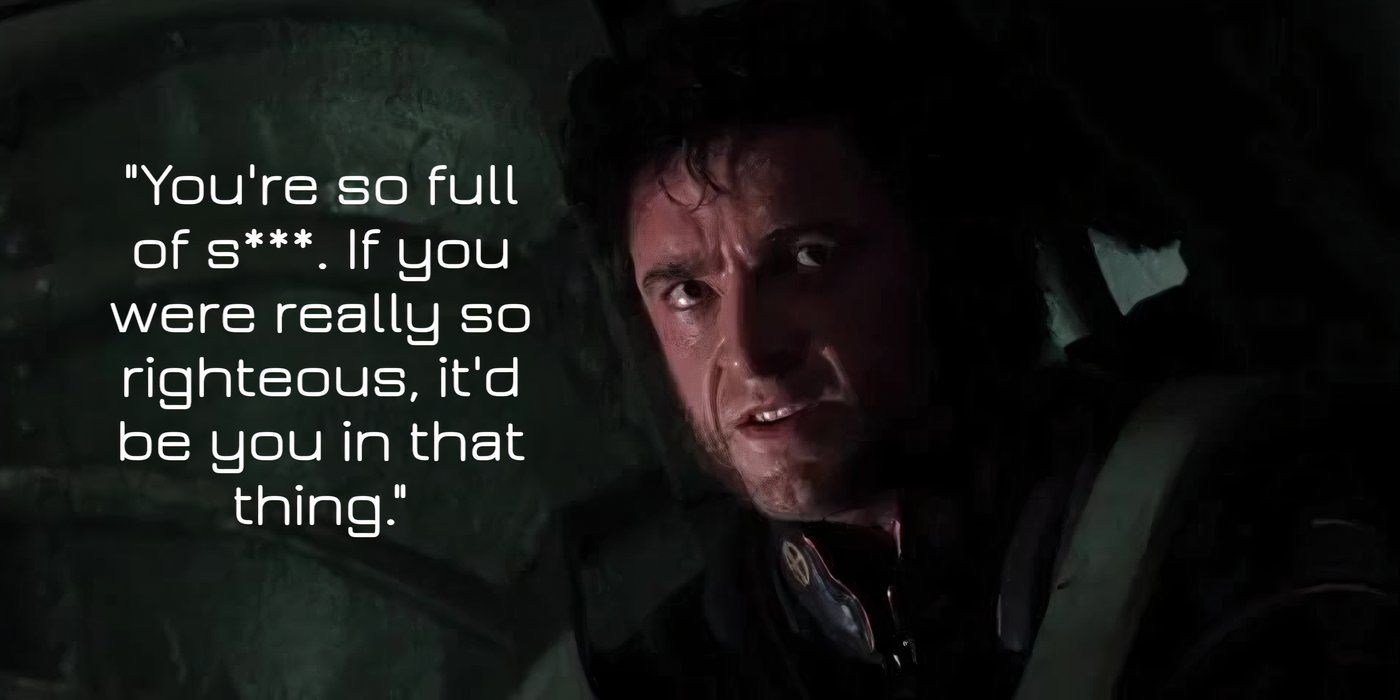Summary
- Magneto highlights the absence of peace and tolerance in society, reflecting his traumatic past in X-Men (2000)
- Wolverine’s existential fatigue revealed in a poignant quote about his tormented existence in Logan teaser
- Xavier and Magneto’s ideological clash is epitomized in a powerful moment of betrayal and loss in X-Men: Days of Future Past
While some dialogue from the X-Men franchise has become iconic Marvel quotations, others, equally profound and thought-provoking, have been unfairly forgotten. The X-Men film series has gifted audiences with a plethora of memorable moments and powerful dialogue. From the ideological clashes between Professor Xavier and Magneto to the personal struggles of characters like Wolverine and Jean Grey, the movies explored themes of identity, acceptance, and the moral complexities of power.
The X-Men movie franchise began with X-Men in 2000 and officially concluded 20 years later with The New Mutants. These overlooked lines offer deep insights into the characters, revealing hidden layers in the X-Men movie timeline. Whether it’s Magneto’s candid reflections on his tumultuous past, Wolverine’s raw expressions of love and sacrifice, or the poignant moments of vulnerability and wisdom from various characters, these lines capture the heart and soul of the X-Men saga.
Related
10 Amazing Costume & Prop Details From The X-Men Movies You Never Noticed
The X-Men franchise is notable for its incredibly intricate prop and costume details that reference the franchise’s history and characters.
10 “Because There Is No Land Of Tolerance. There Is No Peace. Not Here, Or Anywhere Else.”
Magneto To Rogue In X-Men (2000)
When Magneto has Rogue captive and on a ferry bound for Liberty Island in X-Men (2000), he comments on the first time he saw the Statue of Liberty in 1949. Magneto notes that “America was going to be the land of tolerance,” prompting Rogue to ask why he plans to kill her. Magneto responds as the statue looms in the background, “Because there is no land of tolerance. There is no peace. Not here, or anywhere else.”
This quotation recalls Magneto’s harrowing history as a Holocaust survivor and the atrocities he witnessed and endured. This quotation neatly captures how Magneto’s history informs his grim worldview, contrasting it against the Statue of Liberty and the freedom and hope it represents. It recalls the prejudice faced by marginalized communities even in a country that prides itself on being the “land of the free,” reflecting classic X-Men themes of discrimination and identity.
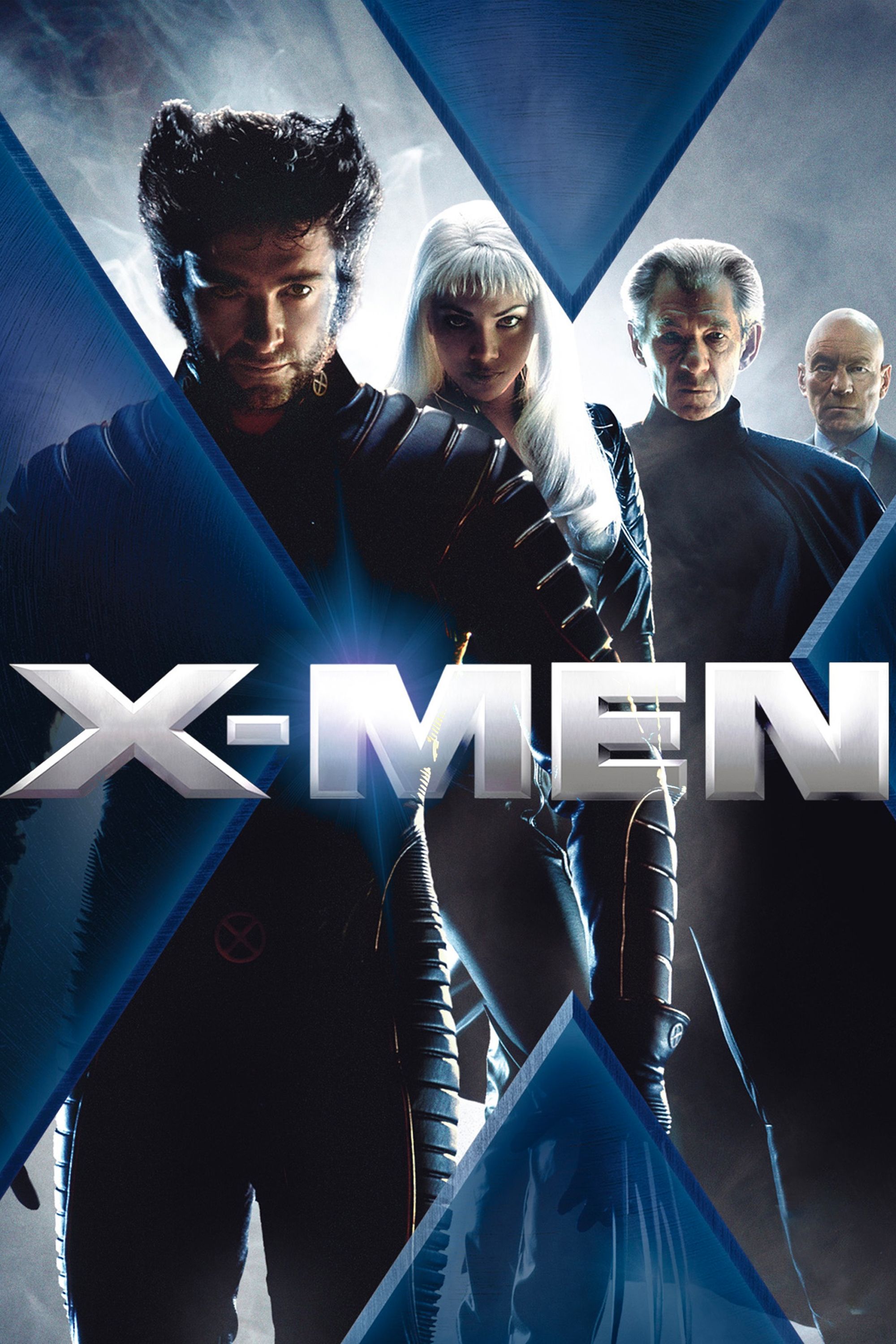
X-Men
X-Men is the first film in the long-running superhero franchise centering on the iconic Marvel team. Wolverine and Professor X take center stage as they and the other X-Men attempt to stop Erik Lehnsherr (aka Magneto) after he has a violent response to the proposed Mutant Registration Act. Hugh Jackman stars as Wolverine, alongside Patrick Stewart, Ian McKellen, Halle Berry, Famke Janssen, James Marsden, and Anna Paquin.
- Director
- Bryan Singer
- Release Date
- July 14, 2000
- Runtime
- 104 Minutes
9 “Nature Made Me A Freak. Man Made Me A Weapon. And God Made It Last Too Long.”
Wolverine In The Logan Teaser Trailer
The first announcement teaser for Logan featured Wolverine delivering a quintessential Logan quotation. As Wolverine’s silhouette stands in a field, Hugh Jackman’s voiceover says, “Nature made me a freak. Man made me a weapon. And God made it last too long.” While this line didn’t make it into the movie Logan, it perfectly captures the essence of his tormented existence.
This often-forgotten line references each stage of Wolverine’s life while perfectly setting up the narrative for Logan. First, his mutation makes him regarded as a “freak” by society; then his manipulation and experimentation in the Weapon X program; and finally, the world-weary version of the hero from Marvel’s “Old Man Logan” storyline confronting his mortality. This line encapsulates Logan’s existential fatigue and the burdens of his past, succinctly setting the stage for Logan and its adaptation of classic Wolverine comics.
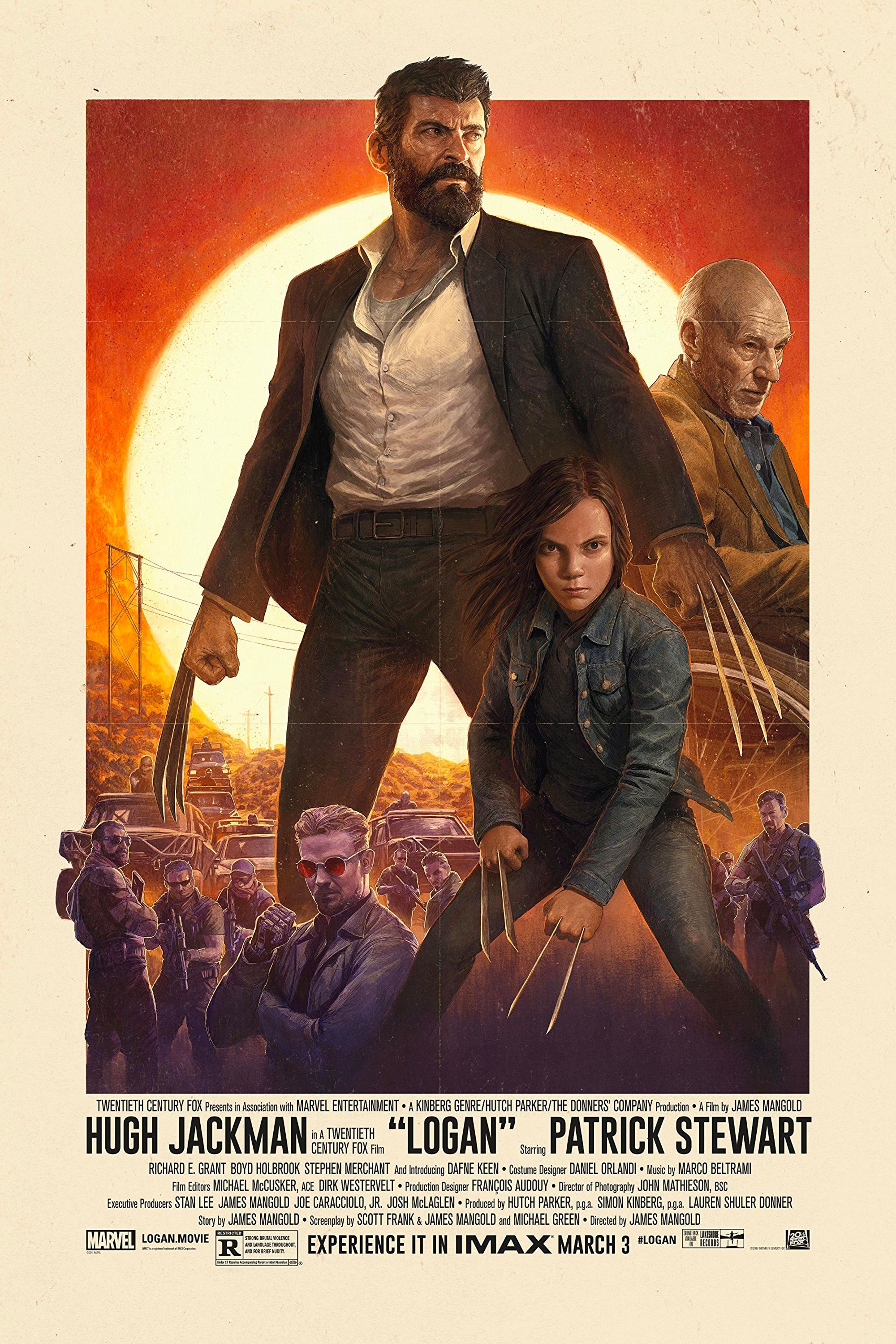
Logan
Logan sees the titular hero, AKA Wolverine, in his twilight years as his healing factor has begun to fail him, and he has begun to age more rapidly. Set several years in the future, Logan finds himself caring for an ailing Professor Xavier, whose mind has begun to succumb to dementia, making him an incredibly dangerous mutant that can cause widespread destruction accidentally. But when the preoccupied Logan is asked to meet with a woman that requests he transports a young girl to a mutant haven known as Eden, he learns that she may have his DNA and that the fate of mutant-kind may rest in her hands.
- Release Date
- March 3, 2017
- Runtime
- 137 Minutes
8 “Someone Will Come Along.” “Someone Has Come Along!”
Wolverine And Xavier In Logan
During Wolverine, Laura, and Xavier’s road trip in Logan, a car accident drives them off the road. Xavier suggests that they get out and help, but Wolverine is worried and thinks that they should keep moving, saying “Someone will come along.” Xavier retorts, “Someone has come along,” convincing Wolverine to relent and help the Munson family.
Logan’s insistence that they keep moving stems from his desire to protect Xavier and Laura. However, by stating, “Someone has come along,” Xavier recalls the sense of duty that comes with being an X-Man and a superhero. Against his better judgment, and with tragic consequences later, Wolverine and Xavier’s inherent heroism urges them to help the needy, even at their own cost. It affirms that Logan is still a valuable hero, emphasizing his indispensable role in protecting the vulnerable in society.
7 “I Hurt People. Yes, Killed People. Killed Whatever I Thought Would Make The Pain Go Away. It Didn’t, No Matter How Many Souls I Sent Under. So I Stopped.”
Magneto To Jean Grey In Dark Phoenix
In Dark Phoenix, Jean Grey, grappling with her newfound powers and their devastating consequences, seeks counsel from Magneto. She asks him how he managed to stop killing, to which he responds, “I hurt people. Yes, killed people. Killed whatever I thought would make the pain go away. It didn’t, no matter how many souls I sent under. So I stopped.”
Magneto’s admission in Dark Phoenix is a poignant reflection on the futility of violence as a means of coping with pain as depicted in all seven X-Men movies. Despite his tragic past and the suffering he has endured, Magneto’s realization that killing does not bring peace or healing is a significant development in his character arc. Magneto’s candid confession to Jean serves as a warning and a lesson, highlighting the importance of finding different paths to healing.
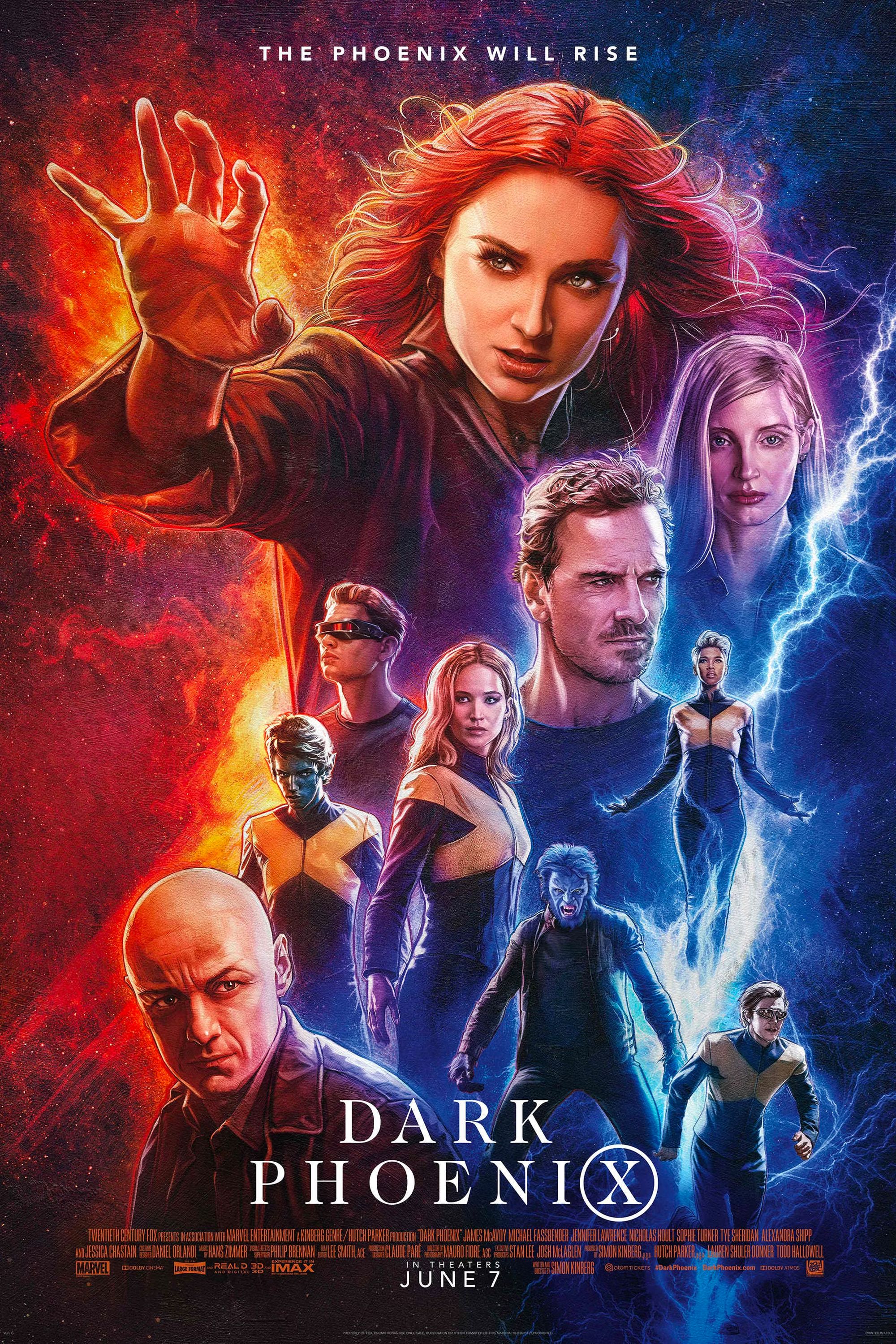
X-Men: Dark Phoenix
In this continuation of the rebooted X-Men movie series, Jean Grey begins to develop incredible powers that corrupt and turn her into a Dark Phoenix. Now, the X-Men will have to decide if the life of a team member is worth more than all the people living in the world.
- Director
- Simon Kinberg
- Release Date
- June 7, 2019
- Runtime
- 113 Minutes
6 “I’ve Been At The Mercy Of Men Just Following Orders. Never Again.”
Magneto To Xavier In X-Men: First Class
The climactic scene in X-Men: First Class where humans launch missiles at the mutants brings a pivotal confrontation between Magneto and Xavier. As Magneto redirects the missiles back at the humans, Xavier desperately implores him to stop, arguing that the soldiers are simply following orders. Magneto’s chilling response, “I’ve been at the mercy of men just following orders. Never again,” echoes his traumatic past.
This moment in X-Men: First Class recalls Magneto’s experiences during World War II, where blind obedience to authority resulted in unimaginable atrocities. His determination to never again be a victim fuels his extreme measures, underscoring his belief that preemptive aggression is necessary for mutant survival. Magneto’s actions and motivations blur the line between heroism and villainy, raising profound moral questions. While Magneto’s stance is rooted in self-preservation and justice for his people, his willingness to harm innocents highlights the ethical complexities of his character.
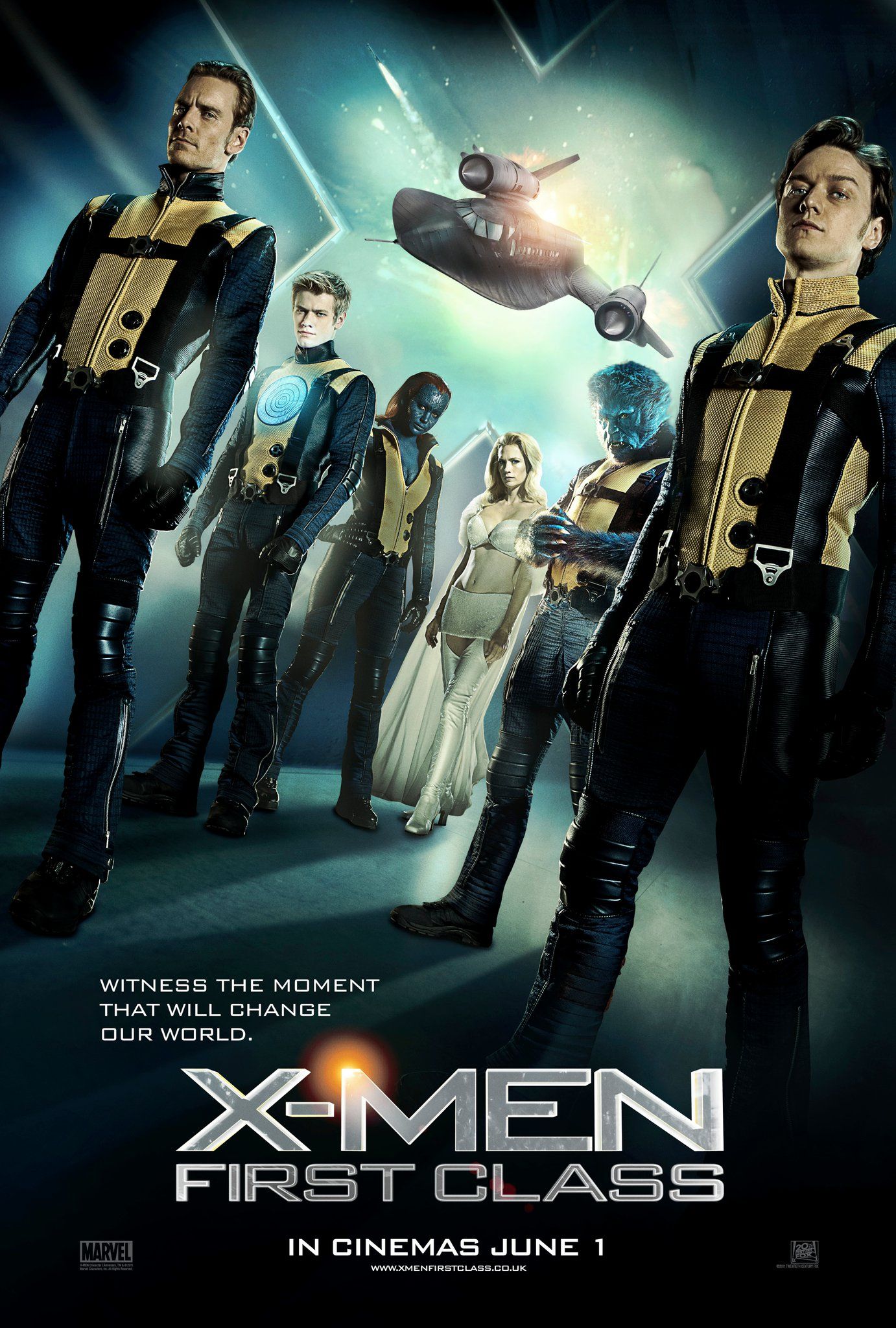
X-Men: First Class
X-Men: First Class charts the epic beginning of the X-Men saga in the 1960s. Before mutants had revealed themselves to the world, and before Charles Xavier and Erik Lehnsherr took the names Professor X and Magneto, they were two young men discovering their powers. Before they were archenemies, they were close friends, working together with other Mutants (some familiar, some new), to prevent nuclear Armageddon. In the process, a rift between them opened, beginning the eternal war between Magneto’s Brotherhood and Professor X’s X-Men.
- Director
- Matthew Vaughn
- Release Date
- June 3, 2011
- Runtime
- 131 minutes
5 “Where Were You, Charles? We Were Supposed To Protect Them! Where Were You When Your Own People Needed You? Hiding!”
Magneto To Xavier In X-Men: Days Of Future Past
In X-Men: Days of Future Past, the intense argument between Xavier and Magneto on the plane is a powerful, often underrated moment. Xavier accuses Magneto of abandoning him, to which Magneto, in a rage, lists the names of fallen mutants. He finally exclaims, “Where were you, Charles? We were supposed to protect them! Where were you when your own people needed you? Hiding!”
One of the best X-Men villain quotes, this line delves deeply into Xavier’s fallibility, shattering the idealized image of him as a flawless leader. Magneto’s accusation highlights the profound sense of betrayal and loss he feels, explaining his hardened mentality since the last film. The scene is crucial in understanding Magneto’s transformation. His anger stems from a belief that Xavier’s withdrawal directly led to the suffering and deaths of many mutants. This moment reflects the ideological rift between them while disclosing several mutants who died after X-Men: First Class.
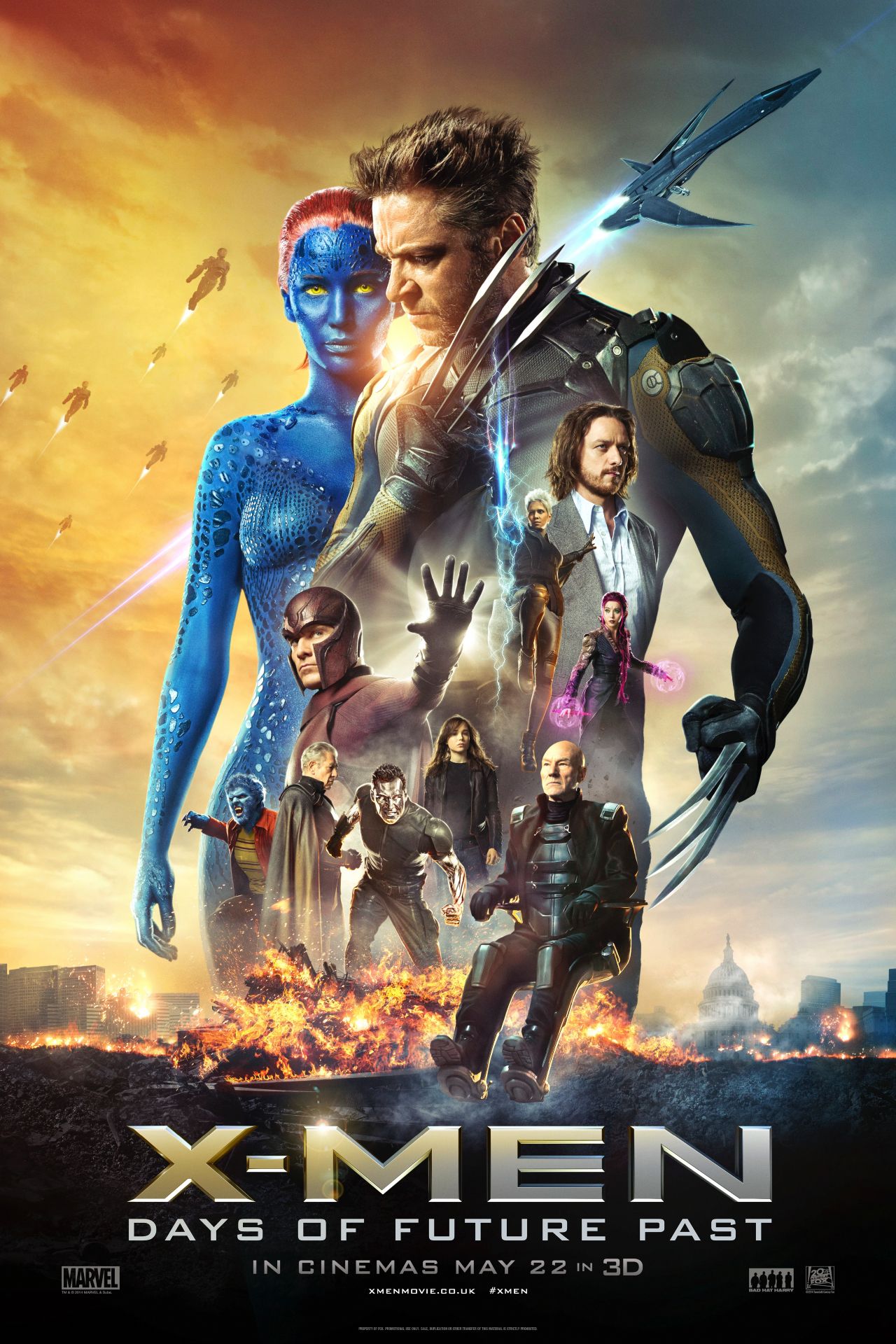
X-Men: Days of Future Past
The fifth installment in the X-Men movie franchise, X-Men: Days of Future Past, is a time-traveling superhero film that takes place between two points in time in the series. With mutants (and almost humans) on the brink of extinction due to the Sentinel robot menace, the last remnants of the X-Men send Logan back in time to stop the assassination of the man who created the Sentinels to save their future from certain doom.
- Director
- Bryan Singer
- Release Date
- May 22, 2014
- Runtime
- 132minutes
4 “You Think Because You Can See Into My Head You Know How It Feels? You’re Looking In The Wrong Place, Charles.”
Xavier To Magneto In X-Men: Apocalypse
When Xavier uses Cerebro to locate Magneto in X-Men: Apocalypse, the villain offers another poignant glimpse into his motivations. Magneto, having joined Apocalypse and his Horsemen, momentarily steps away from the troupe and connects with Xavier. In a moment of raw vulnerability, Magneto expresses his profound sorrow over his family’s loss, culminating in the line, “You think because you can see into my head you know how it feels? You’re looking in the wrong place, Charles.”
This X-Men line is notable for its deeply poetic and evocative composition. It captures Magneto’s torment and demonstrates how he is often motivated by heartache rather than logic. His pain is not merely a mental burden but a visceral, emotional wound that cannot be understood by intellect alone. The line highlights the differences between the former friends, with Xavier driven by mental reasoning and Magneto by raw emotion.
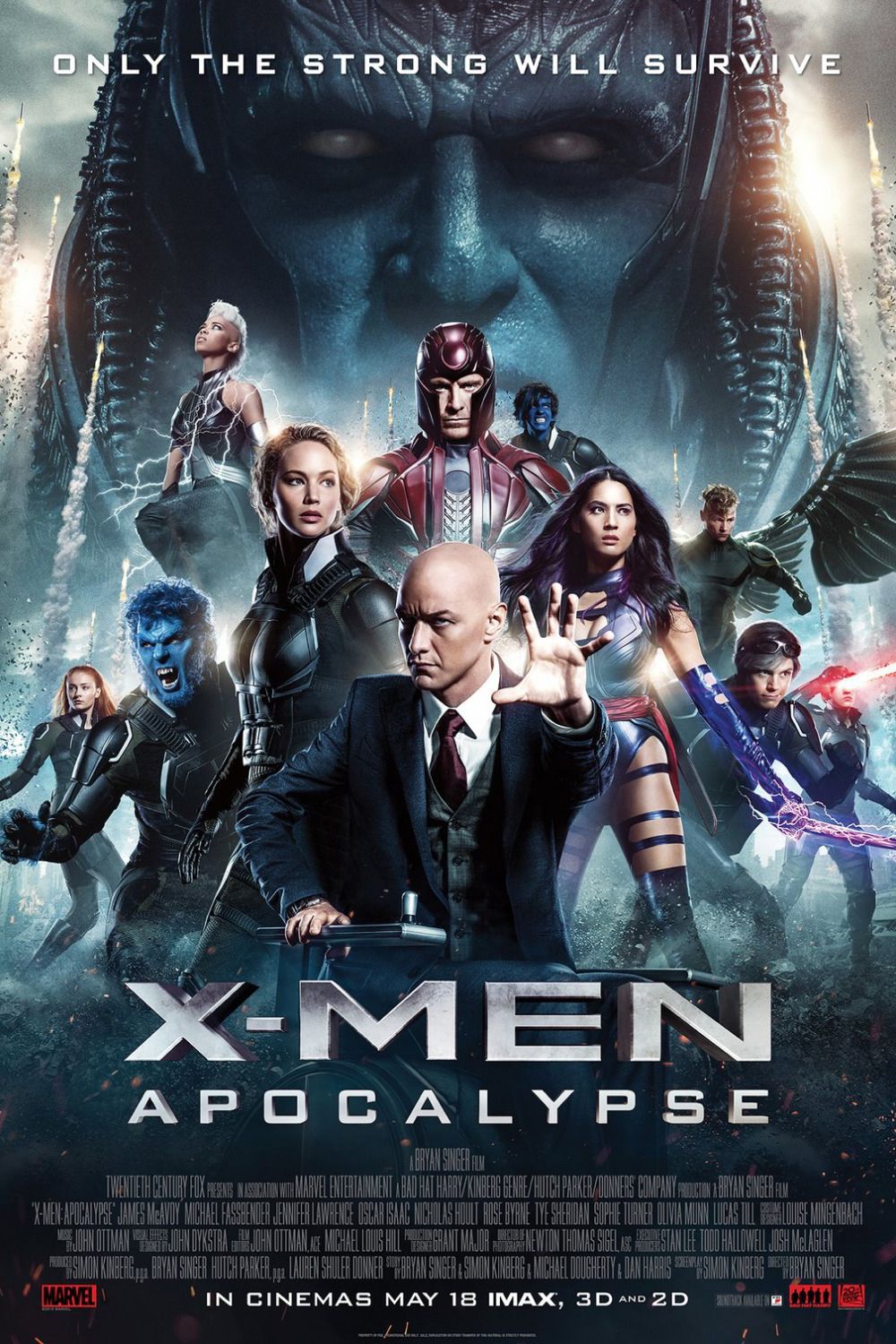
X-Men Apocalypse
The third installment of the X-Men prequel films, and the ninth film in the overall X-Men movie franchise, X-Men: Apocalypse once again sees Professor Xavier and Magneto on opposite sides of a catastrophic conflict. Having been raised from the dead, the ancient mutant Apocalypse wishes to wipe out all of humanity, and recruits four mutants including Magneto to help him in his quest, leading Xavier and his young team of X-Men to try and stop them. James McAvoy and Michael Fassbender reprise their roles as Professor Xavier and Magneto, with a larger ensemble cast that includes Jennifer Lawrence, Nicholas Hoult, Olivia Munn, and Oscar Isaac.
- Director
- Bryan Singer
- Release Date
- May 27, 2016
- Runtime
- 144 Minutes
3 “Have You Ever Tried… Not Being A Mutant?”
Iceman’s Mother To Iceman In X2: X-Men United
The scene where Iceman, Bobby Drake, comes out as a mutant to his parents in X2: X-Men United is designed to mirror LGBTQ+ people coming out to their parents. After fleeing the Xavier Mansion, Iceman, Rogue, Pyro, and Wolverine visit Bobby’s parents. There, Bobby decides to reveal his mutant powers to them. His mother’s response, “Have you ever tried… not being a mutant?” is both heartbreaking and revealing.
The scene resonates greatly with LGBTQ+ viewers who have each faced comparable situations in their real lives. Bobby’s mother’s question, though well-intentioned, exposes her lack of comprehension of his innate identity, suggesting that being a mutant is a choice rather than an inherent part of who he is – a myth frequently touted about the LGBTQ+ community. This quotation reflects how X2: X-Men United uses mutants as a metaphor for homophobia to explore themes of contemporary discrimination.
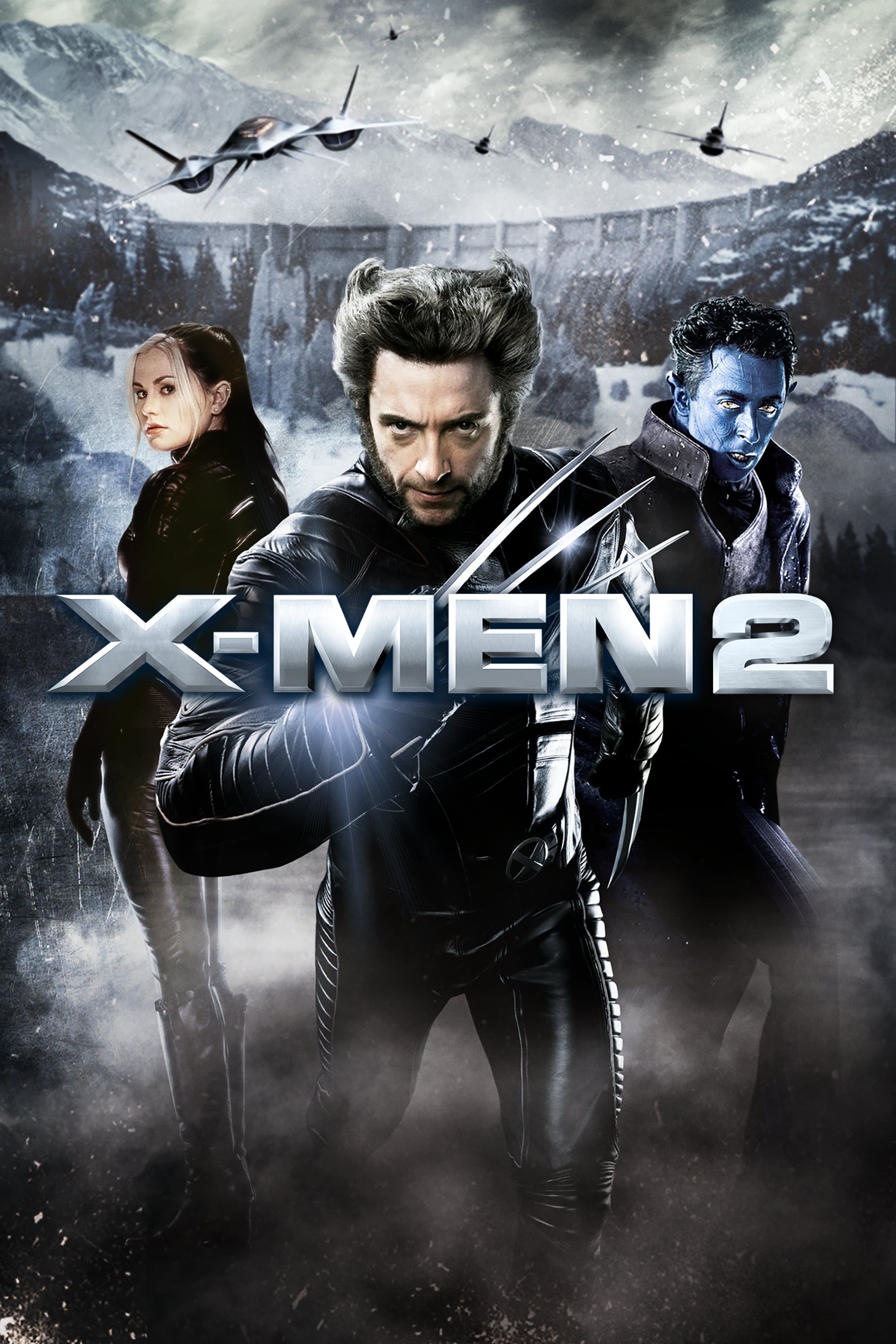
X2: X-Men United
X2: X-Men United is the follow-up film to Fox’s 2000 X-Men starring Hugh Jackman, Ian McKellen, and Patrick Stewart. The film features the introduction of Colonel William Stryker (Brian Cox) as he kidnaps Charles Xavier, which leads the X-Men to team up with Magneto. Most of the cast from the original film returned for the sequel, along with the introduction of Alan Cumming’s Nightcrawler.
- Director
- Bryan Singer
- Release Date
- May 2, 2003
- Runtime
- 134 Minutes
2 “You Would Die For Them?” “No. Not for them. For You. For You.”
Dark Phoenix And Wolverine In X-Men: The Last Stand
The climactic confrontation between Wolverine and Jean Grey in X-Men: The Last Stand is a heart-wrenching highlight of the film. As the Dark Phoenix, Jean’s immense power threatens everyone around her while she destroys Alcatraz. Wolverine, despite enduring blistering injuries, fights to reach her. When Dark Phoenix asks, “You would die for them?” Wolverine’s response, “No. Not for them. For you. For you,” is profoundly emotive.
The performances by Hugh Jackman and Famke Janssen in this scene are particularly compelling, capturing the tragic essence of their characters’ relationship. Wolverine’s struggle and pain are palpable, as is Jean’s torment. This scene culminates in Wolverine’s heartbreaking decision to kill Jean to end her suffering and save the world, providing a mournful end to the X-Men comic book adaptation. The quote and the scene together highlight the themes of love, sacrifice, and the unbearable burden of making impossible choices.
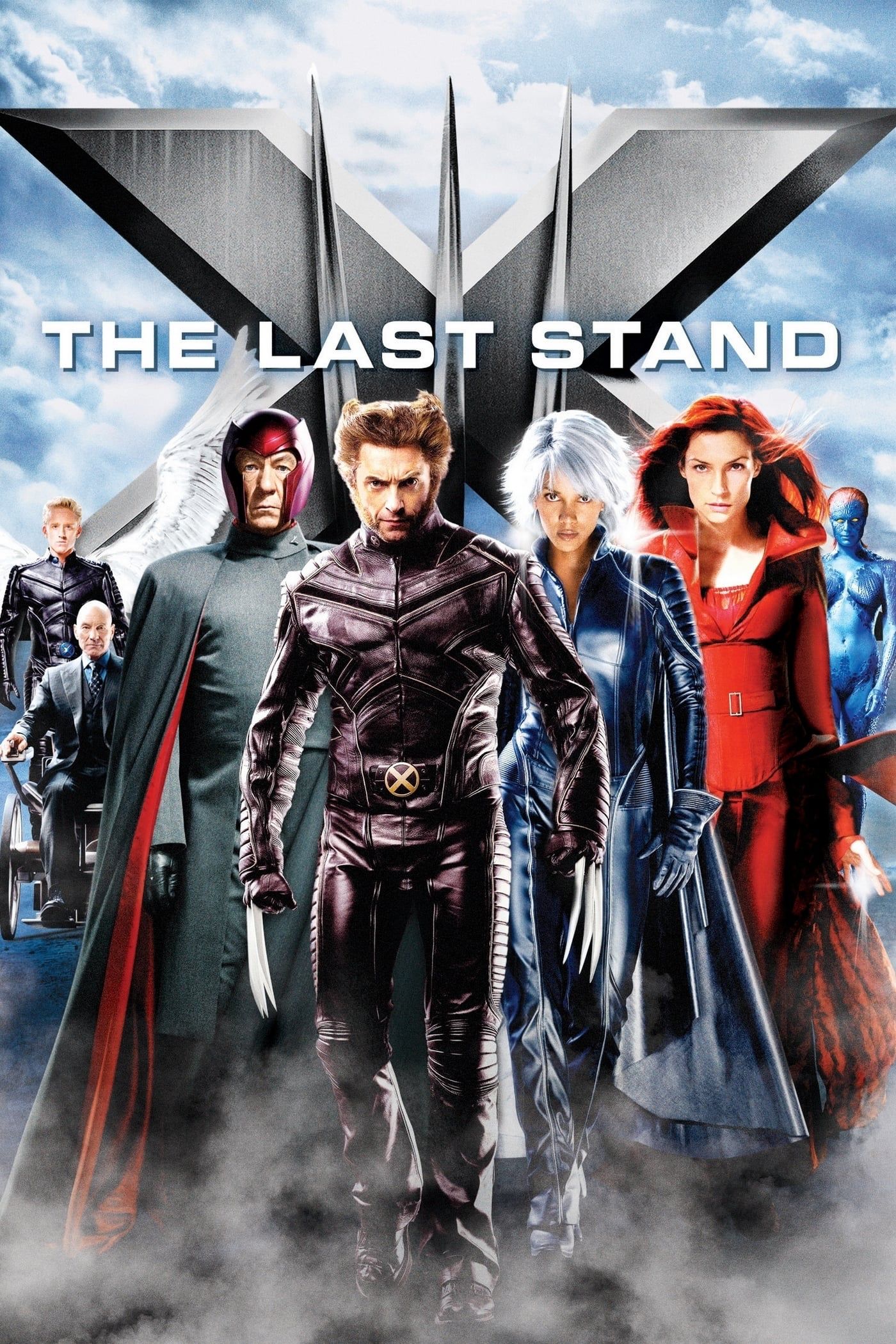
X-Men: The Last Stand
X-Men: The Last Stand is the third and final installment in Bryan Singer’s original X-Men trilogy. It adapts Marvel’s famous “Dark Phoenix” storyline, with Famke Janssen’s Jean Grey embracing her supernatural power to unleash chaos on mutantkind. Fox’s 2006 superhero movie brings back franchise mainstays such as Hugh Jackman’s Wolverine, Patrick Stewart’s Professor X, and Ian McKellen’s Magneto, and it introduces major mutant characters such as Kelsey Grammer’s Beast, Ben Foster’s Angel, and Vinnie Jones’ Juggernaut.
- Director
- Brett Ratner
- Release Date
- May 25, 2006
- Runtime
- 104 Minutes
1 “You’re So Full Of S***! If You Were Really So Righteous, It’d Be You In That Thing.”
Wolverine To Magneto In X-Men (2000)
During the Statue of Liberty scene in X-Men (2000), Magneto has the X-Men captured in the statue’s head. He has Rogue trapped inside the mutant conversion machine, planning to give her his magnetic abilities and turn the humans present into mutants. Hearing Rogue’s distress, Wolverine exclaims to Magneto, “You’re so full of s***! If you were really so righteous, it’d be you in that thing.”
Magneto is often seen as a sympathetic villain, driven by justified motivations rooted in his traumatic past. Indeed, his desire to protect mutants is understandable. However, Wolverine’s accusation cuts through Magneto’s self-righteous facade and his willingness to sacrifice others for his cause. It exposes Magneto’s hypocrisy as he exploits a young mutant to achieve his ends, rather than risking his own life. Wolverine’s blunt retort reveals that Magneto’s actions are not as noble as he professes throughout the X-Men franchise.



